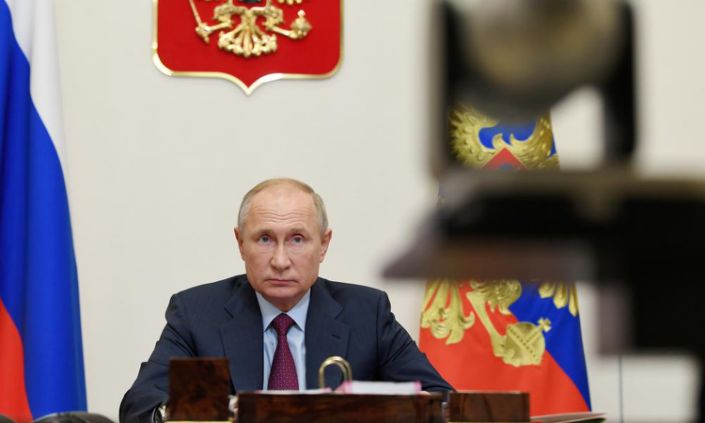as opposition forces in Yerevan protest against the week-old truce and call for the resignation of the prime minister, Nikol Pashinyan.In a Russian state television interview about the deal aired on Tuesday evening, Putin was asked about a new government potentially coming to power reneging on the deal. “That would be a huge mistake,” he said.
The deal, which gave Azerbaijan significant territorial concessions after launching a bloody six-week war, was seen as a capitulation in Armenia and sparked protests against Pashinyan’s government. The country’s president has demanded snap elections and his foreign minister resigned this week in a high-level departure tied to the controversial deal.
Armenian security services last week also said they had prevented an assassination plot against Pashinyan involving an opposition politician and a war veteran.
“A country that is at war or in danger of resuming hostilities, as it has always been in past years, still cannot afford to behave in such a way, including in the sphere of organising power, as to split society from within. I think this is absolutely unacceptable, counterproductive and extremely dangerous,” Putin said.
Early on Sunday 27 September, Armenia announced it was declaring martial law, mobilising its army and ordering civilians to shelter. It claimed its neighbour Azerbaijan had launched a military operation inside a breakaway region called Nagorno-Karabakh. Azerbaijan said it attacked only in response to Armenian shelling.
Nagorno-Karabakh is recognised internationally as Azerbaijan’s territory but has a mostly Armenian population who have resisted Azerbaijani rule for more than a century. In 1991 the region of around 150,000 people declared independence and since then it has ruled itself – with Armenian support – as the unrecognised Republic of Artsakh.
Nagorno-Karabakh, a mountainous, landlocked region inside the borders of Azerbaijan, has been a source of dispute since before the creation of the Soviet Union. Tensions were suppressed when both Armenia and Azerbaijan were Soviet states, but they re-emerged as the cold war ended and Communist party control of the bloc dissolved.
A war between Armenian and Azerbaijani forces ended in a ceasefire in 1994, with Armenia in full control of Nagorno-Karabakh and other surrounding enclaves of Azerbaijan’s territory. Azerbaijan is majority Muslim and Armenia is majority Christian, and some elements on both sides seek to cast the conflict in religious terms.
Pashinyan has said he does not plan to step down, but on Wednesday he offered a government roadmap out of the crisis to “ensure the democratic stability of Armenia”.
The 15-point plan includes assistance to those injured in the war, provisions to return Armenian refugees to Nagorno-Karabakh, and plans to modernise the military, all steps designed to appeal to those who say the government did not do enough to protect the region and its residents from Azerbaijan.
He also called for the resumption of OSCE [the Organization for Security and Co-operation in Europe] talks including Russia, France and the US on the final status of the region, which Armenians call Artsakh. The ceasefire deal does not indicate what will happen to Stepanakert, the region’s largest city, and other territories in Nagorno-Karabakh after a Russian peacekeeping deployment is scheduled to end in five years.
Putin has a complicated relationship with Pashinyan, who rode to power in 2018 on a wave of popular and non-violent protest in Armenia. But the Russian leader played down their differences as he tries to hold together a truce that involves an entrenched conflict between Armenia and Azerbaijan, the growing regional ambitions of Turkey, and the historic involvement of France and the US.
Russia muscled out other parties when it sent in nearly 2,000 peacekeepers to the region in its most significant deployment in the South Caucasus in a decade.
The ceasefire deal releases territories that were won by Armenia following a deadly conflict in the early 1990s. Tens of thousands of ethnic Armenians have left Nagorno-Karabakh and the surrounding regions as they prepare for territories to change hands. Many families have loaded lorries with their possessions and some have set their houses on fire upon leaving.


























































































